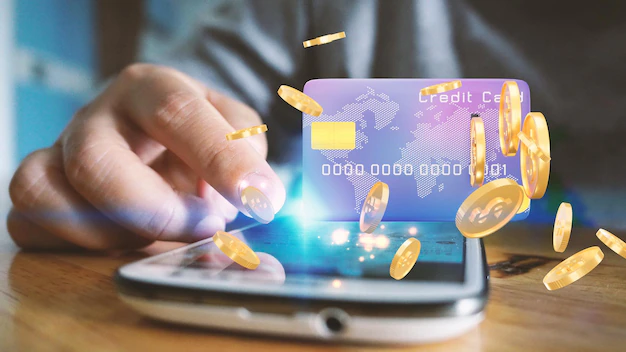Emergency Loans: Financial Lifelines During Crisis
5 Mins Read
Published on: 06 October 2023
Last Updated on: 13 November 2024

toc impalement
Many of us find ourselves frantically looking for a lifeline during sudden financial upheaval when the crisis waves hit forcefully. Emergency loans act as that crucial buoy, giving people and businesses dealing with the unexpected a lifeline.
These financial tools act as a vital link to stability, providing a glimpse of optimism in turmoil, whether it be an unexpected medical expenditure, a natural disaster, or the upheaval of a worldwide epidemic.
What Are Emergency Loans?
These loans are more than just business deals; they speak for the compassion and camaraderie of a community that recognizes the likelihood of financial losses.
We’ll examine how emergency loans function, the available different kinds, and the crucial part they play in maintaining financial stability in times of crisis as we dig deeper into the world of emergency loans.
Understanding The Need For Emergency Loans

Emergency loans are a crucial financial tool designed to provide immediate relief during unexpected and urgent situations. They are a lifeline for individuals and businesses facing crises, such as medical emergencies, home repairs, or job loss. They bridge the gap between the onset of a crisis and the time it takes to secure more permanent financial solutions.
Emergency loans are designed for swift approval and disbursement, often within hours or a few days, which is crucial when dealing with urgent situations. Traditional personal loans may involve a more protracted application process and may take weeks to secure.
Emergency loans may have more flexible qualification criteria, making them accessible to individuals with varying credit scores, including those with less-than-perfect credit histories. They can be tailored to cover a wide range of financial crises, such as medical expenses, home-related emergencies, job loss, or sudden travel needs.
Essentially, emergency loans are versatile instruments designed to provide financial stability when it’s needed most, offering peace of mind during challenging times.
Types Of Emergency Loans
Understanding the types, workings, and advantages of these financial lifelines is essential for building a brighter, more secure future in this period of uncertainty. They can be tailored to cover a wide range of financial crises, such as medical expenses, home-related emergencies, job loss, or sudden travel needs.
Payday Loans

Payday loans are short-term, high-interest loans typically intended to cover small, immediate expenses until the borrower’s next payday. They are relatively easy to obtain but often come with exorbitant interest rates, making them a potentially costly option.
Personal Loans
When it comes to offering a more traditional and flexible approach to emergency financing, personal loans work best. These loans can be secured through banks, credit unions, or online lenders. They usually have lower interest rates compared to payday loans and provide borrowers with more extended repayment terms.
Emergency Savings Accounts
An emergency savings account is a proactive approach to handling unexpected financial crises. It involves setting aside a portion of one’s income regularly into a dedicated savings account, ensuring that funds are readily available when needed. While this method may take time to build up sufficient funds, it offers the advantage of avoiding debt and interest charges.
Cash Advances Associated With Credit Card

Credit card cash advances let cardholders withdraw some parts of their credit limit in the form of liquid money. While convenient, they usually come with high fees and interest rates. Moreover, the interest on cash advances usually starts accruing immediately, making it a costly option if not repaid promptly.
Employer-Based Emergency Loans
Some employers offer their employees access to emergency loans or financial assistance programs. These loans are typically low or zero interest and can be an excellent resource for those facing immediate financial hardships.
Pros And Cons Of Each Type Of Emergency Loan
Each type of emergency loan has its advantages and drawbacks. Payday loans provide quick access to funds but can lead to a cycle of debt due to their high-interest rates. Personal loans offer flexibility and reduced interest rates, but approval may take longer. Emergency savings accounts are a financially responsible option, but they require time to build up.
Credit card cash advances are convenient but costly, while employer-based emergency loans are beneficial for employees but may not be available to everyone. Choosing the right emergency loan depends on individual circumstances, financial stability, and the urgency of the situation.
Eligibility And Application Process
Eligibility for emergency loans varies depending on the type of loan and the lender. However, some common criteria often include the following:
- Proof of income
- A valid ID
- Employment status
- An active bank account
- Credit history
- Debt-to-income ratio
The process of application for emergency loans is straightforward but may vary depending on the lender and the specific loan type. To begin, conduct thorough research to identify lenders offering emergency loans, comparing terms, interest rates, as well as eligibility criteria.
The Application Form Filling…
Fill out the application form, which can be completed online or by visiting their physical offices or phone. Gather necessary documentation, such as identification, proof of income, bank statements, and other specified documents, to assess your eligibility and financial situation.
Application Reviewing
After submitting your application and documents, the lender will review your application to determine if you meet their eligibility criteria. Some types of emergency loans, like payday loans, may offer quick approval decisions, while others may take longer to process. If approved, the lender will provide a loan agreement outlining all loan terms and conditions, which you must carefully review.
Funds Disbursement
If you agree to the terms, sign the agreement to formalize the arrangement. The lender will disburse funds directly into your bank account, with some offering same-day disbursement.
Before accepting an emergency loan, it is crucial to fully understand the terms and develop a realistic repayment plan to prevent financial difficulties. If you find any aspects of the process confusing or have concerns, seek advice from a financial counselor or advisor.
Approval
The speed of approval and funding for emergency loans varies significantly. Payday loans and credit card cash advances offer quick approval and immediate access to funds, while personal loans take longer due to lender processes. Emergency savings accounts require regular contributions.
Employer-based emergency loans are generally faster than traditional personal loans, but their approval and funding speed may vary. Therefore, the speed of approval and funding should be considered when choosing the most suitable option for a financial crisis.
Conclusion
In times of financial upheaval, emergency loans emerge as indispensable tools, offering a lifeline when we find ourselves in the throes of unexpected crises. These loans, ranging from payday loans to personal loans, each come with their own set of advantages and drawbacks, making it crucial for individuals to assess their unique circumstances before making a choice.
Eligibility criteria and the application process vary among lenders and loan types, influencing the speed at which funds are disbursed. In navigating the complex landscape of emergency loans, understanding the available options and their implications becomes paramount.
Moreover, it ensures that when the storm of financial uncertainty hits, one can find the most suitable lifeboat to navigate through the tempest and secure a path to financial stability.
Read Also:


















Comments Are Closed For This Article